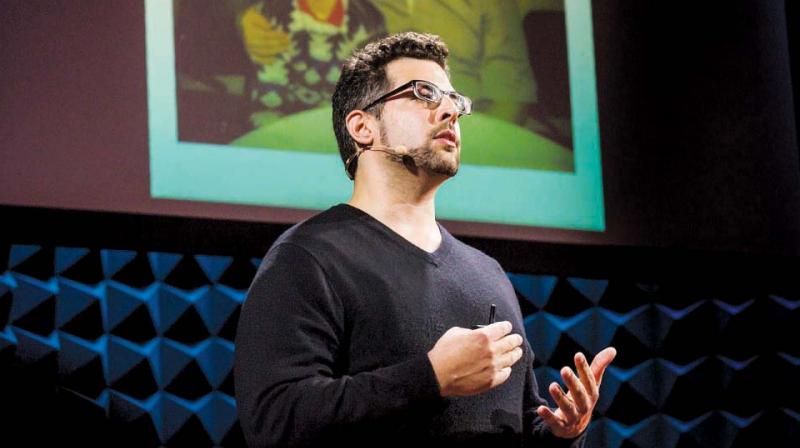Confessions of a terrorist's son

I’ve spent my life trying to understand what drew my father to terrorism, and struggled with the knowledge that I have his blood in my veins. These lines from Zak Ebrahim’s book The Terrorist’s Son, set the tone for his life after he disassociated himself from the towering presence of his father, El-Sayyid Nosair. Born in Pennsylvania, Zak was seven when his father killed the leader of the Jewish Defense League. Later, he was given multiple life sentences during the WTC Bombing Trial. In one of his infamous videos, Osama bin Laden urged the world to “Remember El-Sayyid”.
A keen sense of awareness and a strong mother helped Zak distance himself from the clutches of radicalisation. Today, he is a motivational speaker who shares stories of what it’s like to grow up as a terrorist’s son and why peace is the only way forward. He’ll visit India next month for a talk at TEDx Gateway.
When did you come to know about your father’s activities?
My mother tried her best to shield me from much of the media coverage of the assassination (of Jewish Defense League leader) and the subsequent coverage of my father’s trial. It’s important to remember that my father declared himself innocent of the charges filed against him and my family believed him. It wasn’t until after the 1993 World Trade Center bombing trial that his actions started to become clearer. I would say that I began to realise that he was guilty of the charges when I was about 13 years old. In hindsight, my experiences of going with him to listen to the extremist Sheik Omar Abdulrahman and our trips to the shooting range for weapons practice made it even more obvious.
How did you manage to stay away from his influence despite being at the centre of it?
I did not manage to stay away from it. I held onto much of what he taught me throughout my young life. It wasn’t until I was about 16-18 that I began to interact with people I had been taught negative stereotypes about. That is when I realised that what I had been taught was a lie.
How did you deal with the society’s bias that followed your father’s arrest?
My family received many death threats after my father’s imprisonment. Extremists who supported Rabbi Meir Kahane wanted to punish my father for his crimes by trying to attack his family. We were also ostracized from the community in general. Because of this we lived a very unsatable life, always having to move to a new town when people found out who we were. Eventually we changed our names so as to hide our identities. However, it is very difficult to hide such a big part of yourself from your friends and those you care about.
You’re a promoter of peace today. How different would your life have been, had it not been for your father and his story?
I have always known that whatever direction I chose for myself, I wanted to help people. In my early twenties, I would have considered myself a wandering soul; knowing that I wanted to be passionate about whatever work I did but not really sure what path to choose. It’s almost impossible for me to imagine what path I would have chosen otherwise.
As a promoter of peace, what are the activities/campaigns you are involved in?
I have had the privilege of getting to work with incredible people all over the world who are trying to solve many of society’s problems. I was able to share the stage with one of my hero’s, the arch bishop Desmond Tutu, at Oxford University, discussing the subject of faith. I have also been fortunate to work with Crossroads Foundation; they are an organisation that provides support for refugees around the world. I will be attending the World Economic Forum again this year. I believe that refugee migration will be one of the defining issues of the 21st century and we need more people to get involved in creating a solution.

